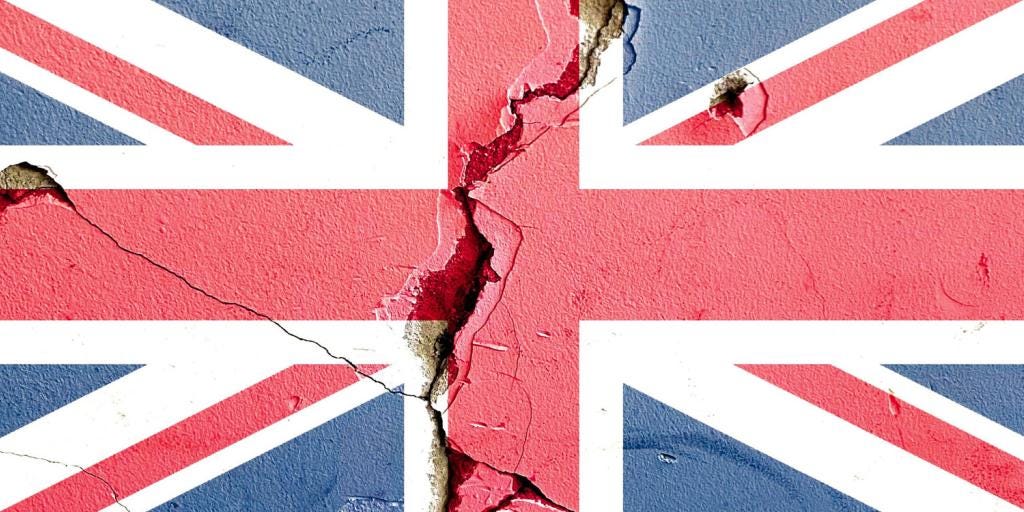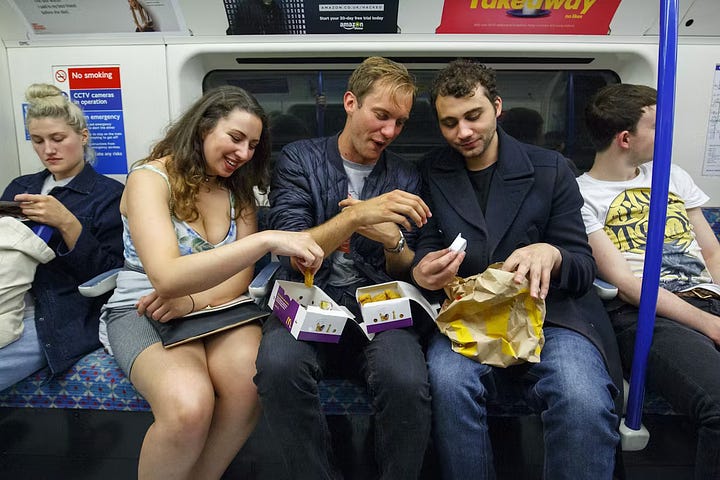Reflections #7
The decline of civility

In modern-day Britain, the decline in manners, standards and public behaviour is very difficult to ignore and it is difficult to ignore because it is all around us. The sad fact of the matter is that, in many respects, we are no longer a civil country. For I would argue that even basic manners and standards have deteriorated considerably. In fact, Britain has become a nation without standards, it is without standards because increasingly people have no pride in either themselves or their surroundings. Alongside this decline we have an increase in all kinds of unpleasant and obscene behaviour, things like: talking loudly in public, swearing, people who do not know how to sit properly, spitting, eating in public, the absence of queuing, not saying ‘please’ and ‘thank you’, people who listen to electronic devices out loud, resting one’s feet on the opposing chair, the general lack of consideration for public property and more (a long list, l know, but by no means exhaustive). This type of behaviour is ubiquitous across the UK, it is the ‘new normal’. It might sound clichéd but public behaviour just seems to get worse over time.
The use of electronic devices out loud I find particularly unpleasant. It is annoying, yes, of course, but it is underpinned by a lack of consideration and selfishness that I find hard to describe. Eating in public spaces has become pervasive now (irrespective of how smelly or messy the food happens to be), as has drinking alcohol in public. Queueing is in sharp decline as well, especially among the young who are more likely to queue-jump than their elders.[1] Queueing used to be a fine example of British civility, the embodiment of a high-trust society deferring gratification for the greater good. Littering is, quite literally, everywhere and is already a big problem in many British cities, it has even been called a crisis in some sections of the media with an estimated 2 million pieces of litter dropped in the UK every single day.[2] Just the other day, in my local Tesco, I saw two people open a bottle of juice and start drinking it, this was inside the store before they had paid - “astonishing” I thought to myself. I have even seen boys use electric scooters in the same store as well. On a bus recently, I witnessed a large, rotund woman having a conversation in her native Balkan or Slavic language so loud she almost drowned out the traffic (you can never tell if they are happy or angry, arguing or simply conversing). There is a man in my gym who wipes down the exercise equipment and then leaves the wet wipes on the floor, by the equipment. Meanwhile, vaping on public transport is common. Now these are all anecdotal accounts, yes, but I see similar types of behaviour almost everywhere I go. This never used to be the case, in fact 9 out 10 Brits say that we are becoming less civilised and that good manners are dying out.[3]

The common denominator for much of this behaviour is selfishness and the fact that people simply do not recognise boundaries anymore. I think this has its roots in the rise of individualism, as people are only concerned with themselves and are oblivious to those around them. Too many people seem to conflate the public and private domains together, acting in public in a way that is inappropriate and that should be reserved for the home. As a society, we no longer have the collective confidence to call out this behaviour for what it is, instead everyone uncomfortably watches as things get steadily worse. We have become front row spectators to our own decline.
The disappearance of shame is one reason why manners and behaviour have declined. Our sense of shame used to influence our behaviour; how other people viewed us used to be of upmost importance, conversely winning the respect of our peers was also important but that has almost totally gone now. Furthermore, standards have eroded because to apply standards to behaviour requires making value-based judgements of individuals which modern society increasingly frowns upon. To do so denotes hierarchy and difference which are heresies to progressives and leftists, especially if inconvenient patterns among the offenders start to emerge. Put simply, when rules and laws are not enforced (or are selectively enforced) people do as they please and this leads to anarchy.

There is a fine line between bad behaviour and anti-social behaviour, sometimes it is difficult to pinpoint exactly where one finishes and the other begins. Britain has a problem with both! There is a ratchetting effect that takes place here: bad manners leads to bad behaviour and bad behaviour often leads to anti-social behaviour. The culminative effect of all this is that it leads many people to withdraw from the public square altogether, at least when it is possible to do so.
This leads us on to the rather problematic role that multiculturalism plays in all of this. Multicultural societies are marked by high crime, low trust and low civic participation – Britain included. People are formed by different social, material and environmental conditions. As a result, different people create different cultures and different societies - that much is obvious. Different values and standards are a natural expression of the differences between people and it is hard, if not altogether impossible, to build a coherent value system when people from all four corners of the world descend on the same locality. This would be the case for any country and Britain is no different.
The decline in manners and behaviour speaks to a broader lack of uniformity and coherence in British life today. Our concept of manners and etiquette is largely unwritten and unspoken. It is passed down by custom and habit, based on mutual ties of trust and commonality among people and also on the social contract between individuals that requires everyone to commit to the rules of respectable conduct and responsible behaviour. If everyone partakes then everyone benefits. However, when the common relations that all this is predicated upon are removed the wider community starts to breakdown and society becomes fractured. This is all part of the same downward spiral and the result is that we are left with social anarchy.
Notes
[1] Peat, J. (2018) 'Generation Z more likely to queue-jump and let others do the same, poll claims | The Independent,' The Independent, 20 July. https://www.independent.co.uk/news/uk/home-news/generation-z-queue-jump-baby-boomers-uk-poll-a8456286.html.
[2] Litter & the law | Keep Britain Tidy (no date). https://www.keepbritaintidy.org/faqs/advice/litter-and-law.
[3] Bassey, A. (2019) Nearly 90% of Brits agree people are becoming more rude. https://www.gloucestershirelive.co.uk/news/uk-world-news/death-good-manners-89-brits-3343789.